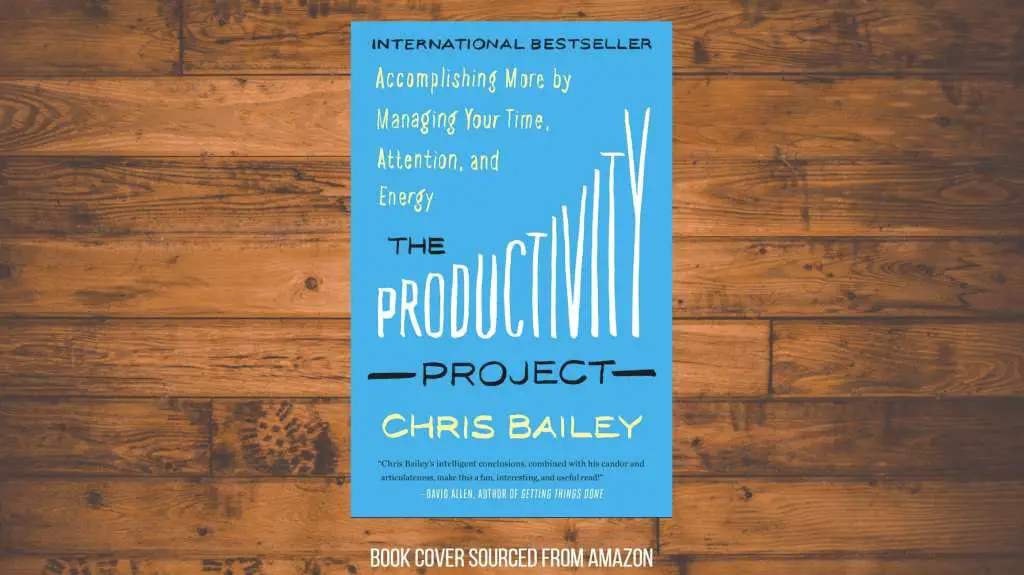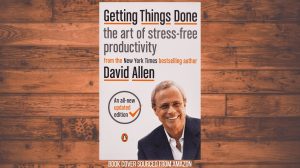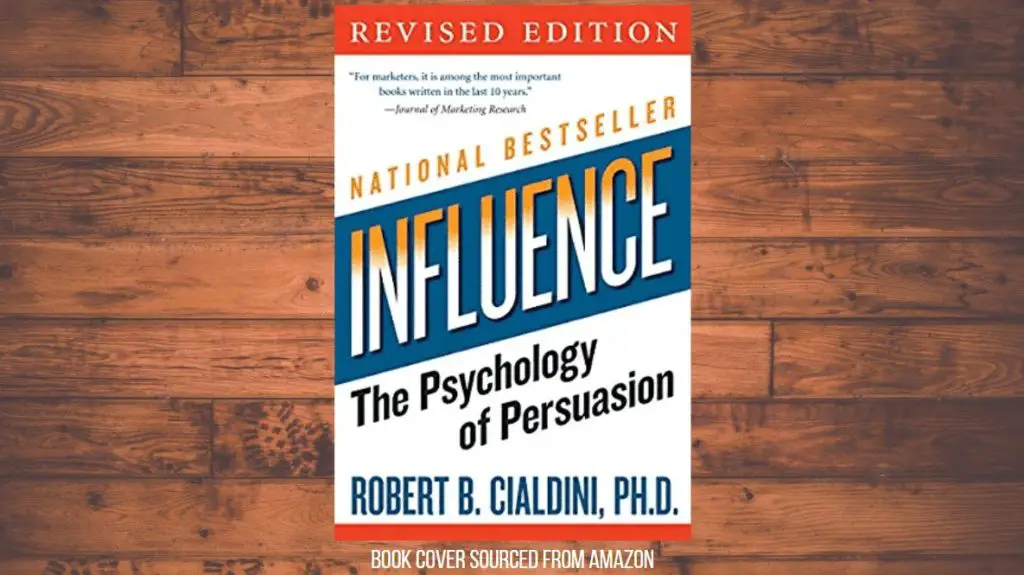This post may contain affiliate links, which means I’ll receive a commission if you purchase through my links, at no extra cost to you. Please read full disclosure for more information.
ABOUT
- Title: The Productivity Project
- Sub-title: Accomplishing More by Managing Your Time, Attention, and Energy
- Author: Chris Bailey
- About the author: Chris Bailey is the creator of the blog ayearofproductivity.com, where we has written well over 200,000 words on productivity. He turned down two job offers to embark on a year-long journey of productivity experiments to learn and become as productive as possible. He has been featured on popular media outlets including The New York Times, The Huffington Post, TED, Lifehacker, and much more.
- Pages: 304
- Published: 2017
- Link to book
HIGH-LEVEL SUMMARY

The Productivity Project is a book named after a journey that the author, Chris Bailey, embarked on. Chris denied two job offers to dive into a year-long project to try to become as productive as possible. He did extensive research and experimented with every tip and method out there that he could find.
He did things such as limiting his sleep, working 90-hour weeks, spending 10 days in isolation, surviving solely on nutrition shakes, using his phone for only an hour a day, and much more.
He created a blog to document his journey, which eventually lead to this book. He connected with notable experts in the world of productivity and was able to interview them and pick their brains.
Everything he learned is consolidated and presented in The Productivity Project. Chris will teach you all you need to know and give you actionable tactics and knowledge you can use to become the most productive version of yourself.
Being productive isn’t about working yourself to the max for all waking hours. It is about accomplishing. Chris Bailey shares how you can accomplish more while also freeing up more time to live your life and do what is important to you.
RECOMMENDATION
If you are someone who can’t seem to be productive or if you are someone looking to become more productive, this book is for you.
The Productivity Project can help those at the start of their productivity journey and those who are experienced. The advice and tactics in the book are versatile and easy to start. The consistent implementation of them will be the hard part.
Since the book is easy to digest and interactive for the reader, I recommend this book to any individual that is interested in becoming productive. Age and occupation do not matter. I think it’s safe to say that everyone wants to become more productive and can benefit from doing so.
The sooner you learn how to do more in less time, the sooner you can reap the benefits. Delaying this only prolongs you living an inefficient life.
I am personally always willing to put in the work up front in order to make the rest of my life easier. The Productivity Project will teach you things and require actions from you that will pay dividends and have your life operating like a well-oiled machine.
TOP 20 TAKEAWAYS
** In no particular order*
1. Productivity tactics exist to help you accomplish everything you need to do in less time, so you can spend more time doing what is actually important to you.
2. Productivity has nothing to do with how much work you do, but how much you accomplish.
3. The three ingredients to productivity are time, energy, and attention, and they are all very interconnected.
4. The best way to measure productivity is to ask yourself a simple question at the end of each day: Did I get done what I intended to?
5. To boost productivity, you have to identify the most high-impact and important tasks and devote all your time, energy, and attention to those tasks. Forget, minimize, or outsource low-impact tasks.
6. The best technique to work deliberately every day is to follow the Rule of Three. Before your day, decide what three things you are going to accomplish. Do the same for the week at the beginning of each week.
7. We all have our own “Biological Prime Time,” which is the time(s) of day where we have the highest energy levels and focus. Energy naturally fluctuates over the course of the day so you want to work on your most important and intensive tasks during then.
8. Nearly everyone procrastinates. The science behind procrastination comes down to a task’s attributes. A task that has these six attributes is more likely to be one you procrastinate on: boring, frustrating, difficult, unstructured or ambiguous, lacking in personal meaning, lacking in intrinsic rewards.
9. The limbic system and pre-frontal cortex are two areas of the brain that battle with each other when you make decisions. The limbic system is the emotional, instinctual part of the brain. The prefrontal cortex is the logical part of your brain that thinks long-term.
10. The best way to keep the internet from wasting your time is to simply disconnect from it when working on high-impact tasks and to disconnect in general throughout your day.
11. Research shows that the character trait most highly correlated with procrastination is impulsiveness.
12. Working longer hours can make you feel like you are more productive, but in reality, you won’t achieve much more than you can when working far less with more focus and attention.
13. Maintenance tasks are things like laundry, watering plants, and cleaning your inbox. Rather than doing a few of them every day, schedule one day where you buckle down and get all your maintenance tasks done in a single day. You’ll get more done per unit of time and your mind will not have to think about them during the week.
14. Simplifying what you take on will help you perform better on what you do decide to take on. It will create more attentional space around these activities, which can allow you to think more deeply about them and focus better. Shrink the unimportant.
15. Externalize your tasks by writing them down or keeping them on your phone through apps. This reduces stress and can help your mental space and organization. The brain is meant for creating ideas, not holding them.
16. There are seven areas that we devote attention and energy to every day: mind, body, emotions, career, finances, relationships, and fun. Listing your commitments to each will allow you to see a portfolio of your life. It will enable you to take a step back and see the big picture.
17. Create room for your brain to let ideas flow to you. Think of how ideas always come to you during things such as a shower. Go on walks, take a shower, go walk through an art gallery, or simply sit in your home. This carves out time to let your mind wander.
18. Practicing meditation and mindfulness can make you more productive by making you calmer, happier, and more focused. Research shows that your performance increases substantially when you are happier.
19. Pay attention to what you eat, what you drink, and how often you exercise. This will help your mind and body, which will ultimately help your productivity.
20. A downside to committing to being more productive is that you will be hard on yourself when you are not. It is important to not be so hard on yourself. Stay happy along the way.
WHAT I LIKED

Interactive challenges at the end of chapters
This book is big on taking action. One way the author empowers you to take action is by including challenges at the end of most chapters in the book. These challenges, which are fairly easy and non time consuming, relate to the chapter.
A few examples include:
- Discovering your high-impact tasks
- Trying out the Rule of Three
- Trying to get work done with short deadlines
- Establishing a Maintenance Day ritual
I enjoyed these challenges because they forced me to take action and implement the ideas from the book. I believe this form of active learning will also help the ideas stick in my long-term memory. Additionally, they kept my attention on the book by making it more engaging.
Devoted observation and research on productivity
I admired the devoted observation and research by Chris Bailey. He gave up two job offers to devote an entire year of his life experimenting and researching productivity. This speaks volumes to his commitment and passion for productivity and it shows through his writing in the book.
As a reader, I have more confidence that the information shared truly includes top-tier ways to tackle productivity and live a better life. He talks the talk because he has walked the walk. Chris went through the trials and tribulations so the reader does not have to. We can draw from his experiences to save a lot of time and effort.
Tackles productivity from all angles
When most people think of productivity, they might think of things such as eliminating distractions, setting a rigid agenda, and moving efficiently between tasks.
While these tactics are a component of productivity, the book tackled productivity from all angles. Improving sleep, diet, and exercise habits are examples of this. The Productivity Project is filled with quick fix tactics you could use, but it was nice to see other alternatives offered that revolved around your mind, body, and well-being.
Counterintuitive, yet logical advice
The book challenged many of the myths around productivity. The solutions were often counterintuitive at first glance but became logical once Chris Bailey explained the reasoning.
Some of these include:
- Working less hours in order to accomplish more
- Slowing down to work more deliberately
- Sleeping more rather than sleeping less to work longer
- Striving for imperfection
- Scheduling less time for certain things
Common beliefs around productivity envision someone who works non-stop, at lightning speed, and sleeps less hours than normal. This may work in the short-term, but it isn’t sustainable. I understood most of these things prior to reading the book, but it was reassuring to see why this was the case.
Book is structured into concise chapters
Lastly, one thing that made the book great was the structure of the chapters. In 300 pages, there were over 20 chapters, which made each chapter short and easy to consume.
I personally find it easier to read books that are structured like this. It is less intimating when you start a chapter knowing that it will end in 10 pages.
BENEFITS FOR YOUR LIFE AND CAREER

Get more done in less time
Imagine the impact to your life and career if you can get more done in less time. The Productivity Project will teach you how to do this in an all-encompassing way.
Not only will it teach you how to do more, but implementing the knowledge will help you become more effective as well. This means performing at a higher level than you thought you could before.
When you create time for yourself by being efficient, you give your mind space to wander and contemplate. This will improve your problem solving abilities. Through this reflection, you can jump back into your work with more enlightenment, focus, and attention.
Grants you more time to live your life
Chris Bailey made it a point for the reader to realize that productivity exists to allow you to focus on more important things in your life. This includes spending time living your life, doing things you love, and spending time with the people that matter to you.
Working longer hours does not exactly mean you will accomplish more. When you are productive, you will accomplish more in less time. Time is something we can never get back and life is meant to be lived.
This is the main reason I enjoy the topic and challenge of productivity. I don’t want to waste any more time than necessary to take care of my obligations. I want to go out and have fun. You can realize this benefit as well by making changes.
Take a load off of you mentally
Another major benefit of productivity is what it does to your mental health and well-being. Stress and overworking yourself quickly takes a toll on you. When you increase your productivity, you will reduce stress, optimize your body, externalize ideas and tasks, and empty your mind.
These are just a few examples of the ways productivity can take a load off of you, but the author shares several more throughout the book.
Benefits will compound in all areas of your life
We’ve established the idea that being productive will allow you to accomplish more, free your time, and improve your mental health and well-being. These benefits will compound on each other through the time that you continue implementing the material from the book.
When you accomplish more and work effectively, you’ll continue to do so and will level up through the years. At work, this will lead to promotions and opportunities. In your everyday life, you’ll get more out of life and create more memories.
Compounding works in more ways than just finance. It works with your habits too. By learning and implementing productive habits sooner, time will become your ally. You will benefit from The Productivity Project for a longer period of time, and with greater magnitude.
10 ACTIONS YOU SHOULD TAKE
1. Begin meditating. It doesn’t need to take long and it doesn’t need to be complicated. Simply sit for 5-10 minutes and focus on your breath. Keep your mind from wandering and bring it back in when it does.
2. In addition to optimizing your time, optimize your attention and energy as well to become your most productive.
3. After each day, ask yourself “Did I get done what I intended to?”
4. Identify your most important and high-impact tasks and focus your efforts there. Don’t let the unimportant take away your time, attention, and energy.
5. Before each day and at the start of each week, identify and write down what three tasks you want to accomplish.
6. For a week or two, keep track of your energy levels throughout the day. You will be able to identify your Biological Prime Time. Once you know when that is, you can shift working on your most important tasks during that time.
7. Overcome procrastination by combating the six triggers of procrastination. Think of ways to make a task more attractive and how you can take care of each trigger.
8. Don’t use your phone or look at it between 8:00 pm and 8:00 am.
9. Work less to do more. Set shorter deadlines and create urgency. Use Pareto’s 80/20 principle to work on the most important.
10. Go on walks more frequently. Don’t listen to music. Simply let your mind wander.
RESOURCES
The Productivity Project can be found on Amazon at this link here if you are interested in reading.



